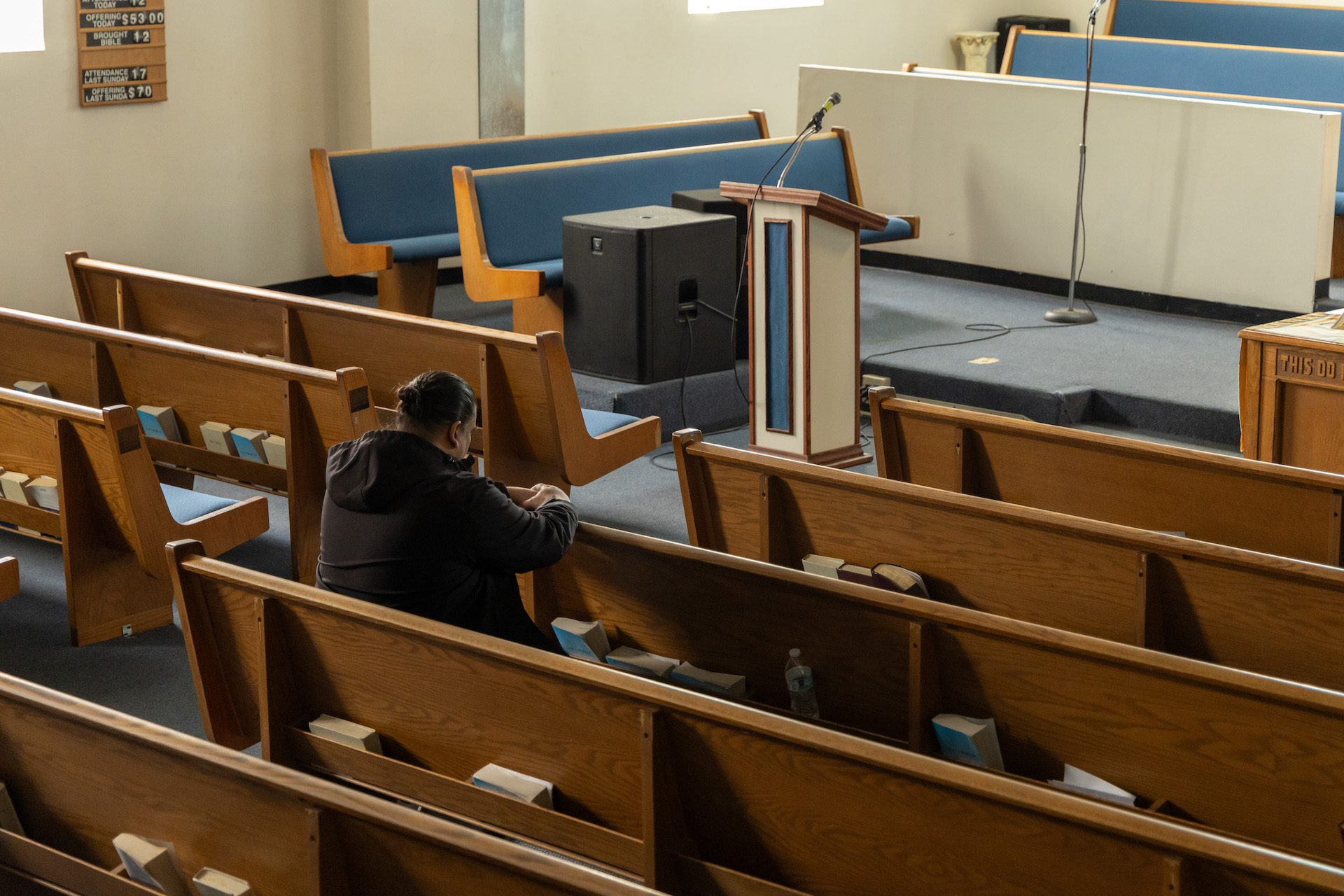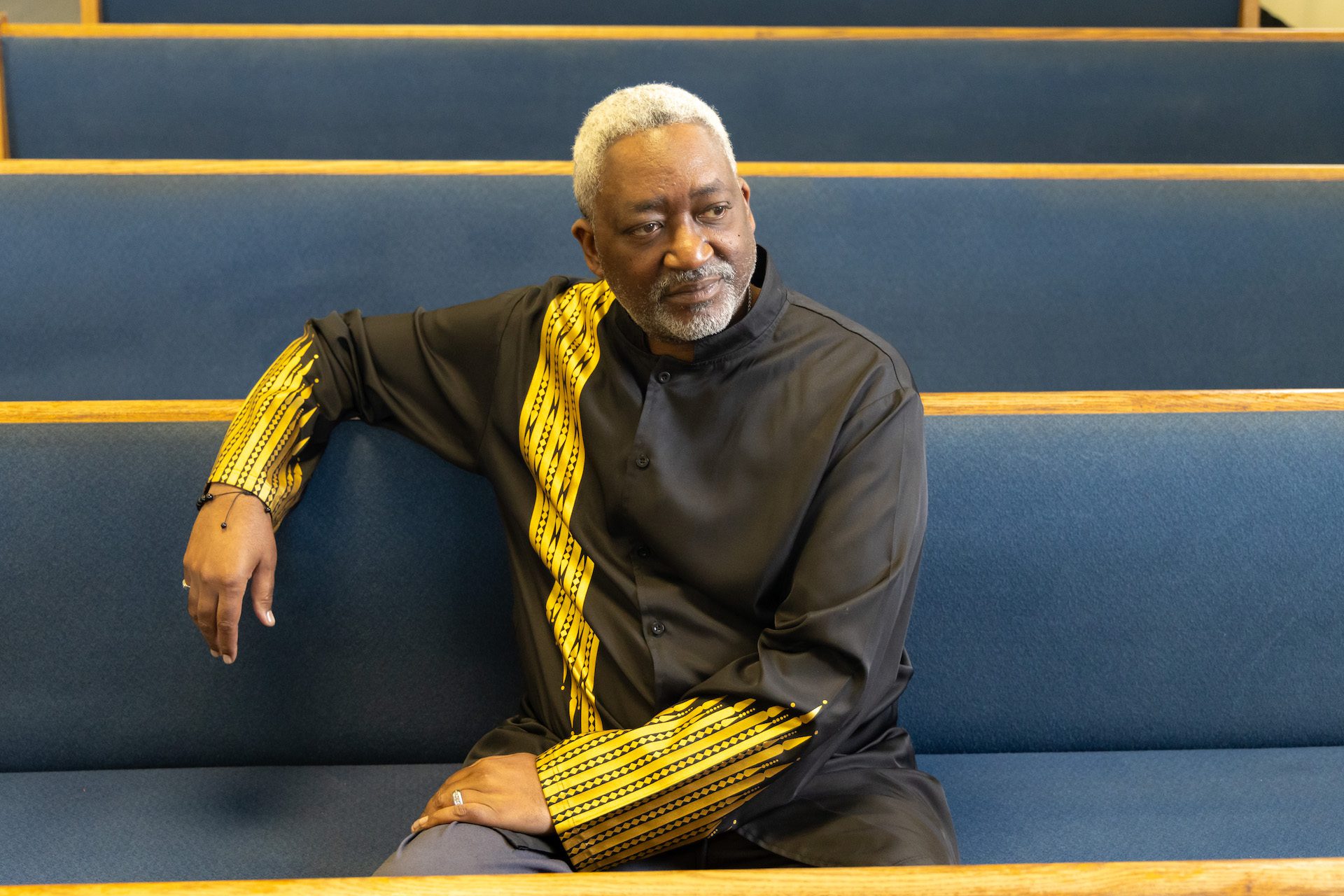 Oscar Gomez/Borderless Magazine
Oscar Gomez/Borderless MagazineAlthough a federal appeals court upheld a judge’s move to halt deportation protections, Venezuelans in Chicago say the community is still living with uncertainty.
The Venezuelan community in Chicago is grappling with fear and uncertainty after President Donald Trump’s attempt to terminate Biden-era deportation protections. Although a federal judge recently blocked the effort to end Temporary Protected Status (TPS), many immigrants say the damage is done, reigniting anxieties that they may be forced to return to a country they fled amid violence, political persecution and economic collapse.
For Oscar, Chicago has become a refuge after he fled beatings, tear gas and extortion threats from Venezuela’s National Guard in 2022. The 46-year-old asked to be identified by his first name because of concerns about his TPS status. In Venezuela, he once owned a cleaning service and was an employee with Goodyear tires. Oscar now calls Chicago home.
For the first time in years, he was hopeful.
News that puts power under the spotlight and communities at the center.
Sign up for our free newsletter and get updates twice a week.
“We have always been good workers, responsible,” he said. “Most Venezuelan migrants are studying to keep moving forward. I feel grateful to be in Chicago, a Sanctuary City.”
But his hopes turned into fear on April 7, when the Trump administration attempted to terminate TPS, a humanitarian program that allows people from crisis-stricken countries to live and work legally in the U.S.
President Trump’s Homeland Security Secretary Kristi Noem determined that temporarily allowing Venezuelans to remain in the country is ‘contrary to the national interest’ and, therefore, decided to remove nearly 350,000 Venezuelans from TPS.
She argued that members of the Venezuelan gang known as Tren de Aragua are among the Venezuelan nationals who have crossed into the United States. The group has been blamed for sex trafficking, drug smuggling, police shootings, kidnappings and the exploitation of migrants.
This stance is a stark departure from the previous administration.
President Joe Biden’s Homeland Security secretary, Alejandro Mayorkas, determined that Venezuelans were eligible for TPS due to ‘extraordinary and temporary’ conditions in Venezuela.
Last month, U.S. District Judge Edward Chen blocked Trump’s attempt to end the program and dismissed the argument on national security grounds. He said the decision was “discriminatory” and that “generalizing criminality to the Venezuelan TPS beneficiary population as a whole is baseless and denotes racism based on widespread false stereotypes.”
“The government has failed to identify any real countervailing harm in continuing TPS for Venezuelan beneficiaries,” Chen wrote in the 78-page order.
“[T]he Secretary’s action threatens to: inflict irreparable harm on hundreds of thousands of persons whose lives, families, and livelihoods will be severely disrupted, cost the United States billions in economic activity, and injure public health and safety in communities throughout the United States,” the ruling states.
The decision allows Venezuelans with TPS to retain legal status to work until Oct. 2026.
The ruling has offered a sign of relief for migrants like Jhon.
The 35-year-old, who asked to be identified by his first name because of his legal status, said he fled Venezuela’s political oppression and governmental threats in late 2023.
Back home, he was a former mechanic. Chicago has become a new home to reunite with his older brother, where he now works at a grocery store.
“I am here with the help of God, and I am not afraid of what Trump has been doing because I trust in God,” he said. “My older brother was in Chicago, and he explained Sanctuary City and its immigration protection policy. That gave me hope.”
Read More of Our Coverage
Meanwhile, immigrant advocacy groups like Alianza Americas, which work towards creating an “inclusive, equitable, and sustainable way of life” for immigrant communities, condemned the attempts to scapegoat the Venezuelan community.
“The Venezuelan community in the United States has contributed significantly… and should not be used as a scapegoat for partisan discriminatory moves,” the organization said in a statement.
Other advocates, like Pastor Kenneth D. Phelps, who helps unite the immigrants at the Home Away From Home Center in Chicago, said his team has created a space of support and care for migrants like Oscar and Jhon.
“When you think of home, you think of family,” Phelps said. “We just thought it would be nice to give them a little piece of Venezuela or Colombia or Honduras—here in the community— to worship in their own language, a place to come and to cultivate, to watch TV, to see soccer, to have coffee, or to cook.”
He worries about the consequences if TPS were revoked.
“If they lose their legal status, they risk deportation, losing jobs, housing, and worst of all, being separated from their families,” he said. “Returning to Venezuela—it’s not like going to a country club. Their lives are at risk.”

Despite the ruling, the fight isn’t over.
Earlier this month,Trump’s lawyers filed a court motion and asked Judge Chen to put his ruling on hold by Friday, April 4. In their 14-page motion, they argued that Noem has the ‘exclusive power’ to revoke TPS orders for Venezuelans and that the plaintiffs don’t have the right to challenge her authority.
“Judge Chen’s decision sends a clear message: immigration policies cannot be motivated by bias or implemented arbitrarily,” Alianza Americas stated. “The immigrant community and its allies will remain vigilant, demanding a fair and legally based process to guarantee the stability of TPS holders.”
Advocates like Pastor Phelps hope his work will highlight the importance of unity amid uncertainty.
“The more we live with one another, the more we worship with one another, it starts to break down stereotypes,” he said.
Fatema Hosseini is a Roy W. Howard Investigative Reporting fellow covering immigrant communities for Borderless Magazine. Send her an email at [email protected].


